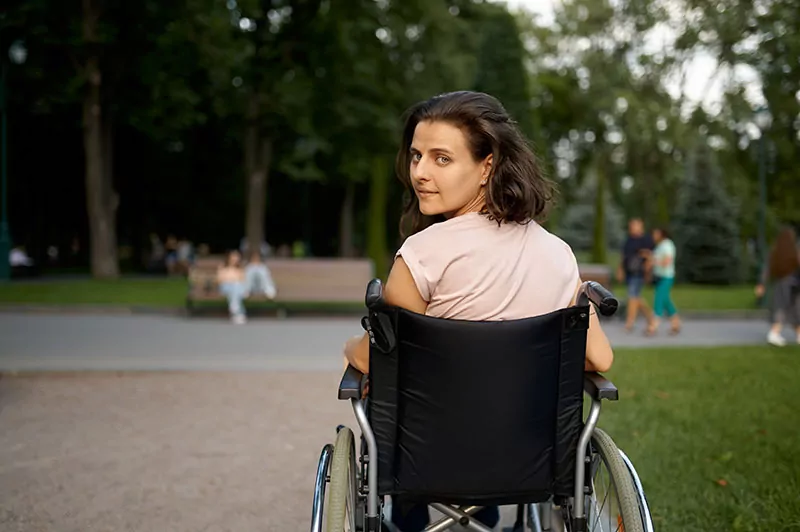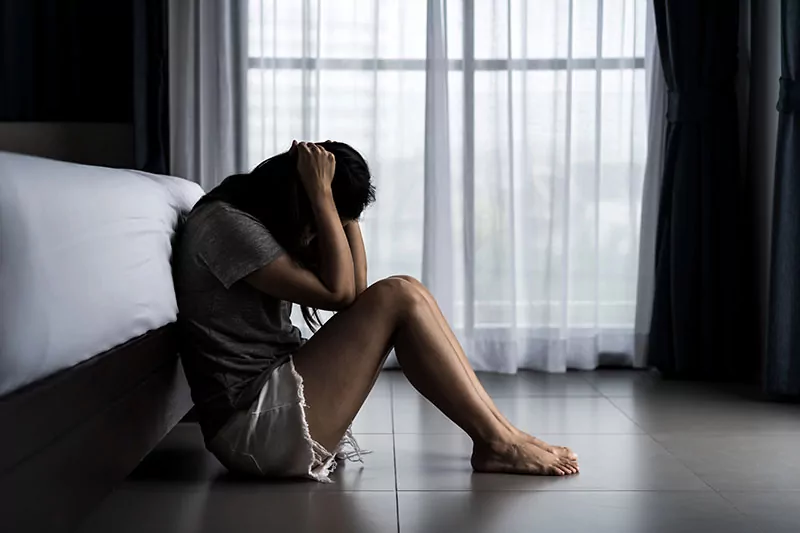9

Let’s have a troublesome dialog. It’s about who dies first after SHTF. It’s a troublesome dialog since you—or somebody you’re keen on—may fall into one of many 6 teams of individuals I’m going to explain. The 5th group may offend a few of you.
This isn’t one thing that’s precisely enjoyable to speak about, however it’s a actuality. A LOT of individuals will die in a large-scale collapse or extended disaster. There’s simply no method round that. It received’t be fairly. This isn’t onerous to think about. Take a coordinated EMP assault, for instance, an assault that concurrently targets the East and West coasts of the USA.
Probably the most fast, most noticeable impression could be the lack of electrical energy throughout huge areas. Inside minutes, complete cities would plunge into darkness. Communication networks would fail, disrupting emergency providers, inflicting widespread panic and confusion. The preliminary hours could be marked by a frantic battle to know the state of affairs, with folks looking for data and help.
As days with out energy flip into weeks, the state of affairs would worsen dramatically. Grocery shops would empty nearly instantly. Essential infrastructure, together with water therapy amenities, hospitals, and transportation techniques, would cease functioning. The dearth of refrigeration would result in meals spoilage, worsening meals shortages. Turbines would supply some with short-term aid, however gas shortages would quickly render them ineffective.
Societal order would begin to fray. Legislation enforcement and emergency providers, overwhelmed and under-resourced, would battle to keep up management. Looting and violence would improve as desperation units in.
By the point weeks flip into months, the grim actuality of a chronic energy outage would develop into evident. With provide chains disrupted, meals and water shortage would result in widespread malnutrition and dehydration, rising susceptibility to illnesses. The absence of unpolluted water would lead to outbreaks of waterborne sicknesses.
The psychological impression of extended energy loss and societal breakdown could be profound. Isolation, heightened stress, and nervousness would take a toll on psychological well being. Communities would fragment, belief would erode, and survival instincts would override societal norms.
Amid the chaos, the loss of life toll would rise—dramatically—not simply from direct causes like sickness and violence but in addition from the shortcoming to entry primary requirements. Sure populations could be disproportionately affected. These are the teams we’re going to debate.
The humorous factor is, whereas most of us perceive how this could be a actuality, someway we think about we’d all the time be the exception, that we—and the folks we care about—would all survive. When you watched my video on 5 harsh realities of life after SHTF, you recognize that most individuals undergo from optimism bias. That’s an issue.
Fact is, as preppers, now we have a cause to be extra optimistic than the remainder of the inhabitants. At the least we’re conscious of the hazards, and actively taking steps to arrange for them, however however many individuals, and lots of preppers, will die.
However who dies first?
Right here is my checklist, so as of who I feel goes first.
1 – The Bodily Weak

The primary group to undergo losses could be the bodily weak. It is a numerous group whose commonality lies of their dependence on a finely balanced community of care and expertise, which might be simply disrupted in occasions of disaster.
First, think about the aged. Many seniors depend on routine medical care and prescription medicines to handle circumstances like hypertension or diabetes. A breakdown in healthcare techniques can lower off their entry to life-sustaining medicine equivalent to insulin, leaving them notably susceptible, and by “susceptible” I imply lifeless.
Then there are these with mobility points, whether or not on account of incapacity, damage, or sickness. For these people, the mere act of evacuating might be perilous. A wheelchair-bound particular person, as an example, may discover themselves trapped if their solely escape route is a stairwell blocked by particles or the driving force isn’t coming with the wheelchair van.
Kids, particularly infants and toddlers, are inherently susceptible. They require fixed care, nourishment, and in lots of instances, specialised remedy. Their survival is closely depending on the preparedness and resilience of their guardians.
Folks with continual circumstances, equivalent to these requiring dialysis, face a dire predicament when {the electrical} grid fails. Dialysis machines are life-preserving however are additionally among the many first to develop into non-operational with out energy.
Take into account, too, people who rely on a gentle provide of oxygen. These sufferers can discover themselves in fast misery when their oxygen concentrators cease working on account of energy outages.
And let’s not neglect these with extreme allergy symptoms or circumstances like epilepsy, who want fast entry to emergency medicines like EpiPens or anti-seizure medicine to stop life-threatening episodes. Refill on antibiotics to scale back the percentages you may perish.
Historical past
Past widespread sense, there are many historic examples the place this has confirmed true.
The aftermath of Hurricane Katrina in 2005 is an instance, the place the frail and bedridden have been left stranded in hospitals and nursing properties with out energy, water, or lifesaving medical interventions. They have been, in some instances, simply deserted. Diabetics went with out insulin, and people on ventilators confronted life-threatening conditions as mills failed.
The 2010 Haiti earthquake unveiled one other layer of harsh reality. Amidst the rubble, people with bodily disabilities have been usually left behind through the frantic preliminary evacuation efforts. These with visible and listening to impairments have been unable to obtain lifesaving warnings and directions.
Within the Nice East Japan earthquake of 2011, the aged confronted insurmountable odds. In a single city, the place almost one-third of the inhabitants was over 65, the shortcoming to swiftly evacuate on account of bodily frailty led to a big variety of casualties.
The European heatwave in 2003 additional illustrates the vulnerability of the bodily weak throughout pure disasters. Round 30,000 folks died throughout that warmth wave, nearly half of these in France alone.
Most of the aged succumbed to the sweltering warmth, notably in France, the place an absence of air con in properties performed a job. The isolation of the aged, compounded by the August vacation season, meant that those that wanted help have been left with out it.
These historic incidents underscore the important want for preemptive planning and assist for the bodily weak.
These folks die first.
What to Do
So what if you happen to or a few of your family members fall into this class? A lot of you might need somebody with a incapacity or continual situation that it would be best to take care of. Perhaps that’s you. Perhaps you’re a silver prepper, which means somebody of their senior years.
You may have challenges forward, no query about that, however there are some steps you may take to enhance the percentages of survivability. You simply need to assume critically about your state of affairs and construct a assist system and assist community.
However there is no such thing as a query, in a severe, extended disaster, the outlook isn’t nice. Folks with mobility impairments ought to have entry to guide mobility aids and apply evacuating with them. It’s additionally important to have a community that is aware of your routine and protected areas you may entry rapidly.
For these depending on supplemental oxygen, hold a reserve of transportable oxygen tanks and be accustomed to guide resuscitation methods. Additionally, guarantee that you’ve got battery backups or a generator on your oxygen concentrator.
The aged ought to have a private alert system to sign for assist. They need to additionally set up a ‘check-in’ protocol with household or neighbors throughout a catastrophe. For youngsters, their care goes to depend on you, dad and mom. Authorities packages and social service techniques received’t assist you.
2 – Leaders

Now if historical past serves as any instance, and sometimes it does, political and enterprise will leaders undoubtedly discover themselves in a precarious place after SHTF. Relying on the disaster at hand, most of the leaders may die subsequent.
They’ve the facility in steady occasions, however they might rapidly develop into targets when stability crumbles. Their selections, alliances, and actions are scrutinized and sometimes met with heightened feelings from the folks. Within the wake of a disaster, these leaders face the twin problem of managing the disaster and sometimes turning into the point of interest of public dissatisfaction or outrage.
Historical past
Occasions of disaster have precipitated among the most dramatic shifts in political and enterprise landscapes, usually with violent outcomes for leaders. The assassination of Julius Caesar in 44 BC, an occasion that occurred amidst political chaos, is likely one of the earliest examples of how rapidly management might be extinguished when discontent brews.
Quick ahead to the twentieth century, the assassination of Archduke Franz Ferdinand in 1914 triggered a sequence of occasions resulting in World Struggle I, illustrating the geopolitical fragility and the private dangers for political figures. Put up-World Struggle II noticed the Nuremberg trials and the elimination of leaders who have been deemed liable for the battle and its atrocities.
Extra just lately, the worldwide monetary disaster of 2008 resulted within the fall of Lehman Brothers and led to the vilification of CEOs thought of liable for the financial downturn. The Occupy Wall Avenue motion of 2011 was a direct response to this disaster, concentrating on financial inequality and the perceived greed of company leaders.
You’ve heard the saying, “Eat the wealthy.”
There are numerous examples, actually. Social upheaval results in change in management, usually by violent means. Individuals are already upset with most elected officers at this time. Think about their discontent within the face of a catastrophe that the federal government can’t deal with—worse, that authorities and enterprise corruption could have prompted. Mob justice can be served on these in energy.
What to Do
So what do you do if you happen to’re a enterprise chief, politician, or authorities official? Effectively, you’d higher have a strong bug out location, that’s for positive. And possibly a second passport. Plan for safety for you and your loved ones. Create a plan to vanish.
3 – The Violent

The subsequent class of individuals to face increased odds of dying could be those that resort to violence for survival. The violent.
Within the chaotic aftermath of a catastrophe, when legislation enforcement is stretched skinny and an influence vacuum emerges, there’s an inclination for a sure phase of the inhabitants to show to violence as a way of survival. This group could consider that through the use of power, they will safe sources, assert management, and even set up a brand new order.
We’ve all heard from these future aggressors earlier than in prepping circles, am I proper? They’re those who say, “I’ll simply raid Wal-Mart after a collapse.” Or they are saying issues like, “I solely must inventory weapons and ammo, then I can take no matter I would like.”
Whereas some could initially discover success via intimidation or outright aggression, this strategy is fraught with hazard. It not solely undermines the material of remaining social constructions but in addition considerably will increase the probability of a violent finish for the perpetrators themselves.
The cycle of violence in post-disaster environments is commonly self-perpetuating. People or teams that resort to violence invite retribution and escalate tensions, which may result in extra widespread battle. Within the absence of a functioning authorized system, justice turns into swift and brutal, and the lifespan of those that stay by violence is drastically lowered.
Historical past
It’s not onerous to see how the aggressors usually find yourself lifeless. Reside by the sword, die by the sword. After a collapse, you need to be in your protected zone, your defensive zone. When you’re heading out with the intent to trigger violence, you’ll discover violence. That will finish in your favor… could. Do it lengthy sufficient, and your luck will run out. Assured.
For instance, through the French Revolution, the preliminary wave of violence in opposition to the aristocracy quickly spiraled into the Reign of Terror, the place revolutionary leaders like Robespierre used violence to consolidate energy. This technique in the end backfired, resulting in Robespierre’s personal execution.
The collapse of the Roman Republic is one other living proof. As energy turned extra centralized and contested among the many likes of Julius Caesar, Pompey the Nice, and others, Rome was engulfed in civil wars, leading to a sequence of assassinations that claimed the lives of many, together with the instigators themselves.
The Bosnian Struggle after the breakup of Yugoslavia within the early Nineteen Nineties additionally demonstrates the dangers of resorting to violence in energy vacuums. The preliminary aggressors usually turned targets within the ensuing ethnic conflicts.
What to Do
My solely recommendation if you happen to’re within the “I’ll simply take what I want” group is to assume once more. You might need all of the tactical gear, Kevlar vests, evening imaginative and prescient, and high-capacity magazines on the planet, however so do a variety of different folks. You may shoot your method via the primary few encounters, however—finally—grandpa is gonna take you out together with his lever motion 30-30. Violence is just not a survival plan. It’s a loss of life plan.
4 – The Remoted

The subsequent group to fall could be the remoted. Isolation might be as a lot a psychological barrier as it’s a bodily one. Isolation encompasses not solely these in distant or rural areas but in addition people in bustling city facilities who lack a assist community of household, pals, or neighborhood.
The lone wolf survivor is just not going to fare effectively. These with out a community for household and pals will battle. It takes a village.
This isolation might be detrimental in occasions of disaster, because the alternate of support, data, and emotional assist is essential. With out these connections, the remoted are sometimes the final to obtain assist and essentially the most susceptible to the compounded results of a catastrophe.
Historical past
Historical past has proven that those that are remoted usually fare worse in crises.
- In the course of the 1918 Spanish Flu pandemic, rural communities with restricted entry to medical care and present data suffered increased mortality charges. Equally, in city settings, the aged and infirm who lived alone confronted extra important challenges with out a assist system to assist them entry therapy.
- The Nice Blizzard of 1978 within the Northeastern United States left many individuals stranded of their properties, however the toll was heaviest on these residing alone who couldn’t attain out for assist.
- The 1995 Chicago warmth wave is one other instance, the place many of the 700 victims have been aged people who lived alone and have been socially remoted; they have been much less more likely to have air con or to hunt assist on account of their isolation.
- 2011 Thailand Floods: As huge areas round Bangkok have been inundated by floodwaters, those that lived alone or in distant communities have been notably affected. With aid efforts strained, these people had fewer means to name for assist and have been usually ignored in favor of extra accessible, populated areas.
What to Do
For these prone to isolation, being proactive is essential to making sure security and well-being. The fashionable expertise we use in our computer systems and smartphones provides us the phantasm of being extra linked, however it’s simply that—an phantasm.
Individuals are much less more likely to know their neighbors at this time than in years previous. Folks construct friendships fully on-line. That’s nice, however when the grid goes down, these folks aren’t round to assist. You want people who find themselves bodily current.
5 – The Mentally Weak

Now, this subsequent class, a few of you may take offense to this. I name it the mentally weak.
The “mentally weak” are those that resolve to only name it quits somewhat than face what’s going to come. It’s an argument shared by many. Residing your ultimate days in a post-apocalyptic world. There doesn’t sound like there’s a lot pleasure in that, and I can’t clarify why I might select to hold on so long as I may. It may simply be a pure survival intuition, however I are inclined to assume it’s extra of a morbid curiosity. I need to see all of it unfold.
So, I’m unsure what to name it. Is “mentally weak” the appropriate phrase? My thought has all the time been that these folks would lack the psychological fortitude to endure the tip of the world as we all know it. However possibly I’m fallacious. Perhaps they’re not mentally weak. Perhaps they’re good. Let me know what you assume within the feedback part if you happen to assume there’s a greater phrase, or whether or not this group of individuals might need it proper.
Both method, within the aftermath of a societal collapse, psychological resilience turns into as vital as bodily endurance. Those that discover it difficult to deal with the acute stress, nervousness, and the psychological toll that such catastrophic occasions can impose could resolve the best choice is testing.
This contains people who could expertise overwhelming worry, despair, or hopelessness, probably resulting in paralyzing inaction or determined selections. The psychological pressure of tolerating a long-term collapse can exacerbate current psychological well being points and equally impression those that have by no means struggled with psychological well being earlier than.
Historical past
The siege of Leningrad throughout World Struggle II, which lasted over two years, is a chief instance the place the psychological pressure on the town’s inhabitants was as deadly because the famine and chilly. The extended stress and trauma led to a breakdown in social order and situations of maximum desperation.
Within the wake of the 1929 inventory market crash, many who misplaced their fortunes, confronted with what appeared insurmountable monetary smash, tragically selected to finish their lives.
In the course of the Rwandan Genocide, the psychological scars left on survivors have been deep and enduring. The psychological resilience required to outlive such an ordeal was immense, and lots of struggled with the long-term psychological well being penalties of such trauma.
Nonetheless you consider this group, they’re not going to make it. They’ll both crack beneath the trauma and go insane, or they’ll simply observe the thought course of that it’s simply not value occurring.
6 – The Unprepared

This final class describes each non-preppers and the people who find themselves struggling to only get by. It’s the unprepared. In a extreme disaster, the disparity between these with ample sources and people with out turns into very evident. The dearth of sources encompasses not simply monetary means but in addition entry to important provides like meals, water, and shelter.
These with out sources could embrace people residing in poverty, the homeless, and even middle-class households residing past their means with nothing to indicate for it. Even among the well-off, frankly.
Granted, on the monetary entrance, in a long-term SHTF, TEOTWAWKI-type state of affairs, the greenback turns into as nugatory as your 401k, however usually, notably within the early days of a disaster, these with monetary sources can usually discover security and safety.
Historical past
The vulnerability of these with out sources in occasions of disaster is a recurring theme in historical past. In the course of the Thirties, the Mud Bowl compounded the distress of the Nice Melancholy, as impoverished farmers confronted the lack of their lands and livelihoods, resulting in widespread displacement often called the Mud Bowl migration.
Within the prelude to World Struggle II, the Jewish populations in Europe have been more and more marginalized and stripped of their sources. These with the monetary means—and foresight—managed to to migrate and keep away from the horrors of the Holocaust, whereas many who lacked sources—or whose property have been seized—have been left extraordinarily susceptible to the following genocide.
The impression of Hurricane Katrina in 2005 additionally illustrates this divide. The rich managed to evacuate New Orleans promptly whereas most of the metropolis’s poorest residents, with out the means to go away, endured the worst of the storm’s aftermath, trapped within the Superdome with out entry to primary requirements.
It’s not simply monetary sources, although. It additionally contains provides, know-how, and abilities. In any case, you can be a Silicon Valley tech millionaire with out the fundamentals to make it via a 72-hour collapse, no data of non-public safety or survival instinct, or real-life abilities that embrace something past laptop code. If that’s you, you is likely to be in bother after SHTF.
What to Do
Now if you happen to’re not one of many tech billionaires shopping for up land in New Zealand with your individual airstrip for a private survival retreat, you continue to have loads of choices. For these with restricted sources, preparedness can appear daunting. Nonetheless, even minimal steps could make a big distinction.
You’re watching this video in spite of everything. You’ve subscribed to my channel and all. Proper?
You’re stocking water, meals, and tools to outlive. In lots of instances, simply surviving the primary or second section of a disaster will dramatically improve the percentages you’ll survive the complete factor. Irrespective of how unhealthy issues get, finally techniques re-emerge.
Folks will come collectively in some trend. Economies and commerce will occur once more. Sources will come again. When you can construct up the sources—and abilities and knowhow—to get via the preliminary collapse, you’ll be well-positioned to maintain on conserving on.
It is advisable to do extra than simply inventory rice and beans, although that’s an ideal begin. Be taught primary survival abilities equivalent to discovering and purifying water, sourcing or rising meals, and first support. And construct up a listing of important provides like meals reserves, medical kits, and instruments.
Keep in mind the golden rule in prepping. Two is one and one is none. Create techniques of redundancy. Maintain educating your self. Maintain prepping. It’s a marathon not a dash.
Hope for one of the best. Put together for the worst.

